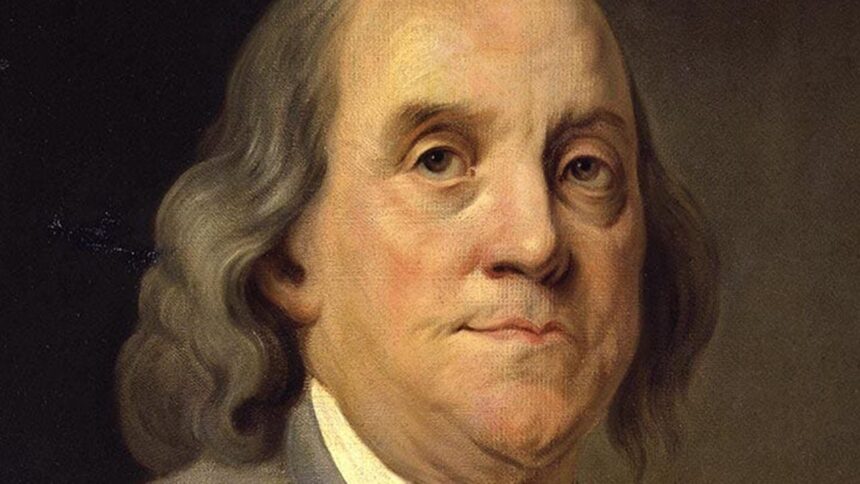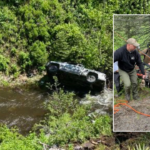On at the present time in historical past, June 10, 1752, Benjamin Franklin reportedly flew a kite throughout a thunderstorm, with the purpose of accumulating ambient electrical cost in a Leyden jar — a container that would retailer {an electrical} cost for later use.
This probably would allow him to show the connection between lightning and electrical energy.
Franklin confirmed an curiosity within the topic of electrical energy within the mid-1740s when a lot was nonetheless unknown on the subject. For nearly a decade he carried out electrical experiments, notes Historical past.com.
Franklin coined plenty of phrases nonetheless used right now on this area, together with battery, conductor and electrician, and he’s identified for different necessary innovations such because the lightning rod.
ON THIS DAY IN HISTORY, JUNE 9, 1891, CELEBRATED COMPOSER COLE PORTER IS BORN IN INDIANA
On a June afternoon in 1752, rain reportedly started to fall from the skies of Philadelphia, and Franklin opted to fly a kite, in keeping with The Franklin Institute of Philadelphia.
He reportedly used a easy kite made with a big silk handkerchief, a hemp string and a silk string. He additionally had a home key, a Leyden jar and a size of wire.
Franklin’s son, William, reportedly assisted him with the experiment.
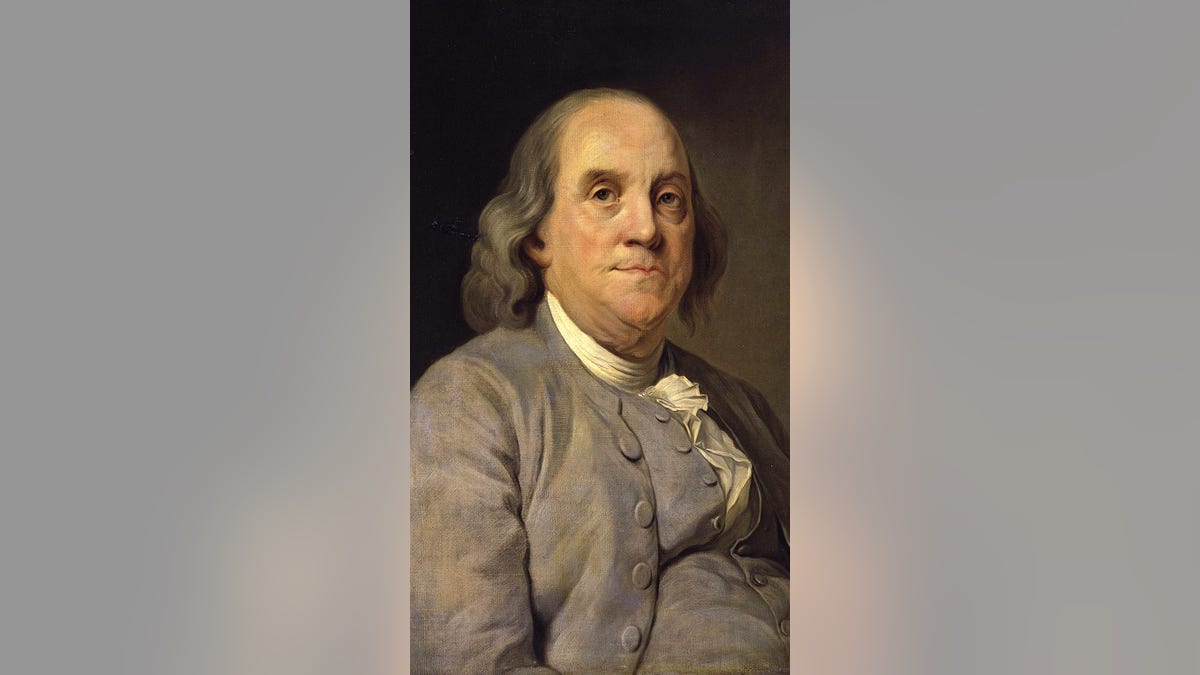
A portrait of Benjamin Franklin by Joseph-Siffred Duplessis, the Nationwide Portrait Gallery, 1783. (Getty Pictures)
Regardless of a typical false impression, Franklin didn’t uncover electrical energy throughout this experiment — or in any respect, for that matter, in keeping with Philadelphia’s Franklin Institute.
“Electrical forces had been acknowledged for greater than a thousand years, and scientists had labored extensively with static electrical energy. Franklin’s experiment demonstrated the connection between lightning and electrical energy,” the institute notes.
“It is a widespread fantasy that Franklin found electrical energy,” notes LiveScience.com.
“In 1753, he acquired the distinguished Copley Medal from the Royal Society.”
“Electrical energy had already been found and used for hundreds of years earlier than Franklin’s experiment,” the positioning added.
Throughout his time, electrical energy was understood as “the interplay between two completely different fluids, which Franklin later known as ‘plus’ and ‘minus,’” it additionally stated.
ON THIS DAY IN HISTORY, MAY 15, 1800, PRESIDENT ADAMS MOVES FEDERAL GOVERNMENT FROM PHILADELPHIA TO DC
After his presumed profitable demonstration, Franklin continued his work with electrical energy, happening to excellent his lightning rod invention, The Franklin Institute notes.
“In 1753, he acquired the distinguished Copley Medal from the Royal Society, in recognition of his ‘curious experiments and observations on electrical energy,’” says this supply.
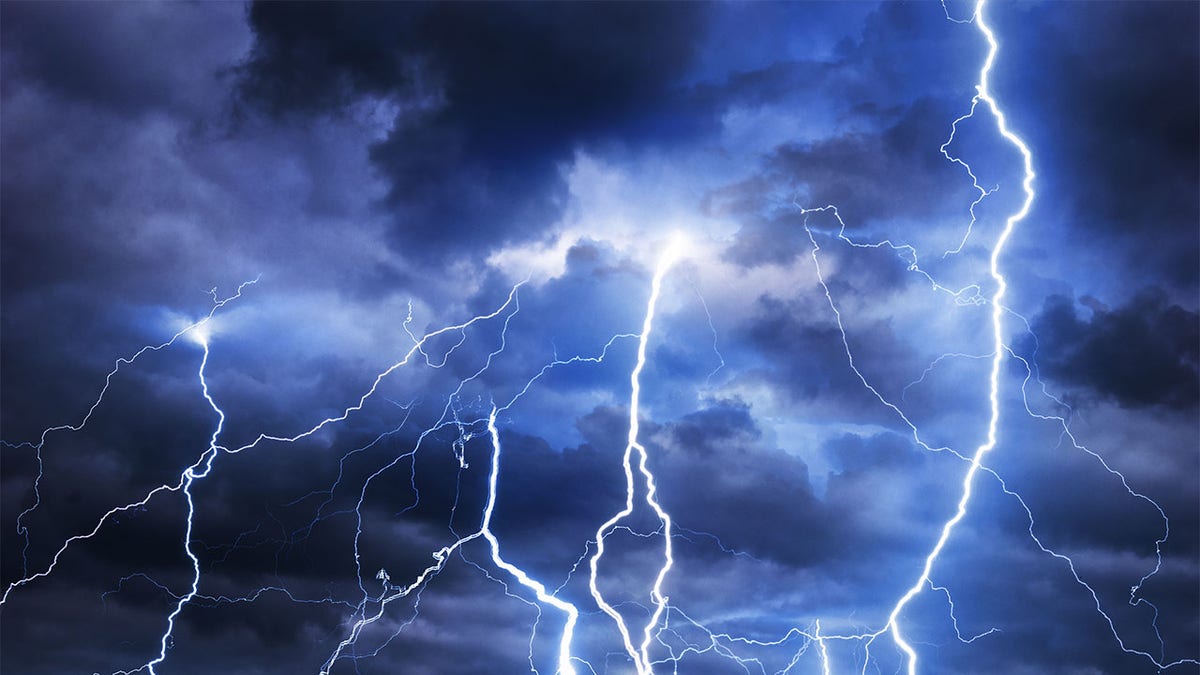
“Electrical energy had already been found and used for hundreds of years earlier than Franklin’s experiment,” Philadelphia’s Franklin Institute notes. (iStock)
On Jan. 17, 1706, in Boston, Massachusetts, Franklin was born to oldsters Josiah Franklin and Abiah Folger, who have been candle and cleaning soap makers.
Franklin’s schooling stopped at round age 10; he then started work as an apprentice to his brother, James, who was a printer.
Franklin’s expression “Early to mattress, early to rise, makes a person wholesome, rich and sensible,” nonetheless has present-day attraction.
In 1723, after a dispute together with his brother, he left Boston and moved to Philadelphia, the place Franklin continued his work as a printer. Whereas in Philadelphia, he loved enterprise success, publishing the Pennsylvania Gazette and Poor Richard’s Almanac, a collection of “homespun proverbs advocating laborious work and honesty with a view to get forward,” says Historical past.com.
First revealed in 1733, his proverb, “Early to mattress, early to rise, makes a person wholesome, rich and sensible,” nonetheless has present-day attraction.
ON THIS DAY IN HISTORY, MAY 1, 1881, CLARA BARTON, ‘BRAVE’ BATTLEFIELD NURSE, CREATES AMERICAN RED CROSS
For practically 16 years, between 1757 and 1775, Benjamin Franklin — scientist, diplomat, thinker, inventor, one of many founding fathers of the USA and extra — lived at 36 Craven Avenue in London, says The Benjamin Franklin Home in London.
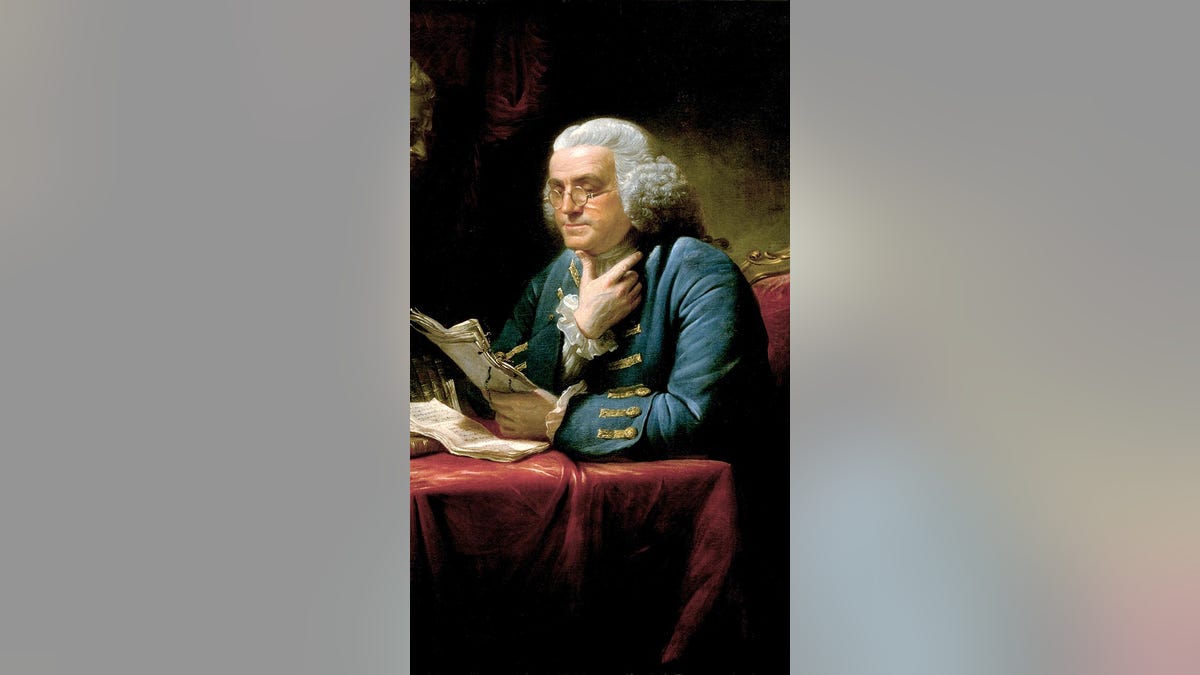
Portrait of Benjamin Franklin by David Martin (oil on canvas on panel from the White Home assortment, Washington, D.C.), circa 1767. (Getty Pictures)
“Whereas he could have been in London as chief colonial diplomat, his time right here encompassed way more than politics,” it additionally notes.
Benjamin Franklin first visited London as a teenage printer within the mid-1720s and stayed for 18 months, in keeping with Mountvernon.org.
“He returned in 1757 as probably the most well-known American on this planet,” the positioning notes.
ON THIS DAY IN HISTORY, MAY 30, 1868, FIRST DECORATION DAY IS HELD IN REMEMBRANCE OF THOSE LOST IN WAR
Whereas he traveled to Britain because the consultant of the Meeting of Pennsylvania, “his status was based on one thing else fully,” it continues.
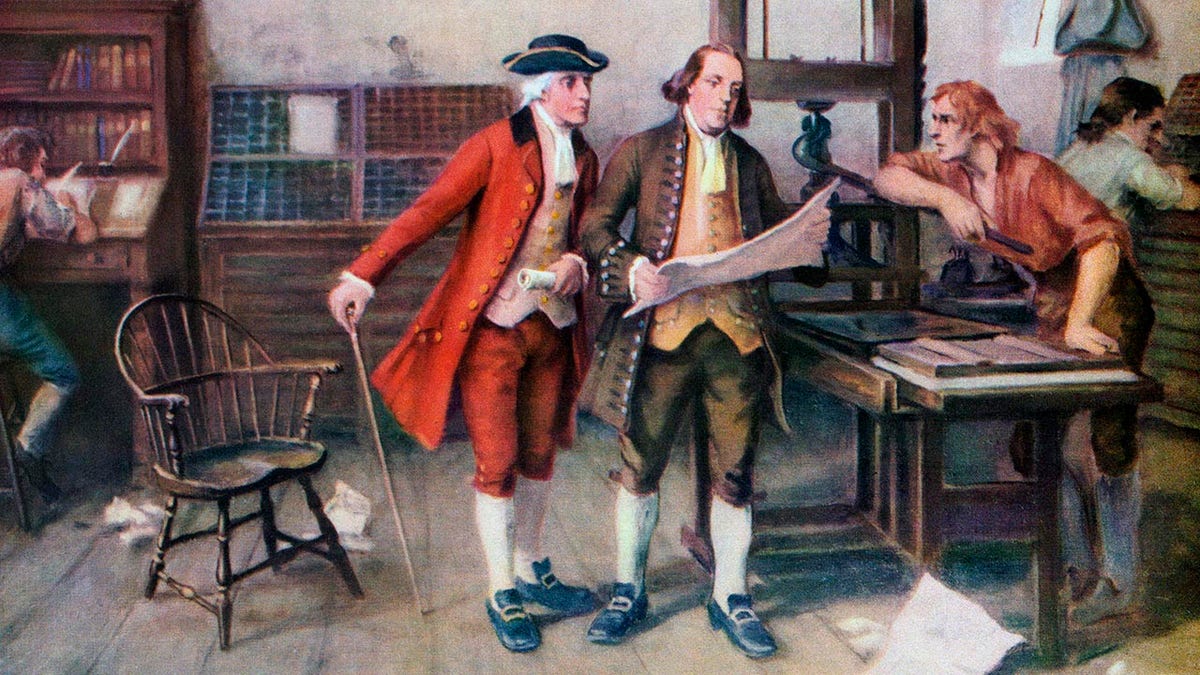
Benjamin Franklin and associates at Franklin’s printing press in 1732; display print, 1954. (Getty Pictures)
“Franklin was a well-known scientist within the Atlantic World, a Fellow of the Royal Society and associates with most of the main intellectuals of the day, together with Joseph Priestley, David Hume, Erasmus Darwin and Richard Value.”
For extra Life-style articles, go to www.foxnews.com/way of life
Past scientific achievements, together with the ‘key in a thunderstorm’ experiment, his function as a statesman prolonged for 4 many years.
CLICK HERE TO SIGN UP FOR OUR LIFESTYLE NEWSLETTER
“He served as a legislator in Pennsylvania in addition to a diplomat in England and France, and Franklin is claimed to be the one politician to have signed all 4 paperwork basic to the creation of the U.S.: the Declaration of Independence (1776), the Treaty of Alliance with France (1778), the Treaty of Paris (1783), which established peace with Nice Britain and the U.S. Structure (1787),” in keeping with Historical past.com.
CLICK HERE TO GET THE FOX NEWS APP
Franklin died at age 84 on April 17, 1790, in Philadelphia, Pennsylvania.

